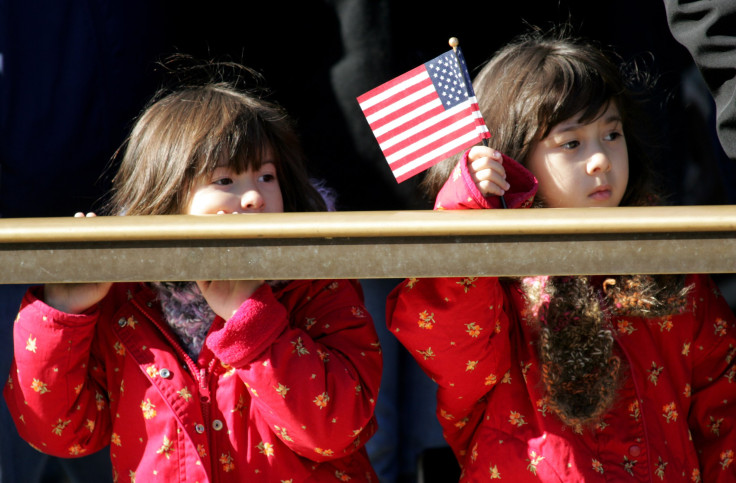Child Abuse Increase In Homes Of Returning US War Veterans: Report

Young children living in the homes of soldiers returning from military deployments are at a higher risk of violent abuse in the first six months after the parent returns, according to an academic study released Friday. The study, which was carried out by researchers at the Children’s Hospital of Philadelphia and was published in the American Journal of Public Health, looked at more than 112,000 families of soldiers with children two years and under between 2001 and 2007.
The authors of the study used Department of Defense-confirmed instances of abuse from a parent or guardian and the medical diagnoses given by nurses and doctors inside the military healthcare system, according to a Stars and Stripes report Friday. “This study is the first to reveal an increased risk when soldiers with young children return home from deployment," David Rubin, co-director of the hospital's PolicyLab and the report's senior author, said in a statement. "This really demonstrates that elevated stress when a soldier returns home can have real and potentially devastating consequences for some military families."
The report’s findings show the far-reaching, negative effect on children, some of which may not have even been born when the Iraq War began in March 2003, and highlight the additional hidden costs of the overlapping conflicts in Iraq and Afghanistan that killed more than 5,300 troops and injured 50,000 more.
The Army said the information was important as it would lead to preventative measures in the future.
“While incidents of child abuse and neglect among military families are well below that of the general population, this study is another indicator of the stress deployments place on soldiers, family members and caregivers," Karl Schneider, principal deputy assistant secretary of the Army for manpower and reserve affairs, told Stars and Stripes. "Since the end of the data collection period in 2007, the Army has enacted myriad programs to meet these kinds of challenges head on, and we will continue working to ensure services and support are available to soldiers, families and their children."
The researchers concentrated on the first two years of the child’s life because this is a period when a child is most at risk from life-threatening abuse. The report noted that there were 4,367 victims from the families of 3,635 soldiers during the study period.
In instances where the parent went on a second deployment, the risk of child abuse was approximately doubled, but that threat primarily came from a guardian rather than the soldier.
"The finding that in most cases, the perpetrators were not the soldiers themselves reveals to us that the stress that plays out in military families during or after deployment impacts the entire family and is not simply a consequence of the soldier's experience and stress following deployment," Christine Taylor, the study's lead author and a project manager for PolicyLab, said.
However, the study also found that mandatory reporting of child abuse by the Army to the Pentagon's Family Advocacy Program -- which offers parenting and child care classes to ease a soldier's transition into civilian life -- was often ignored: 80 percent of the instances of abuse were not reported.
© Copyright IBTimes 2025. All rights reserved.






















